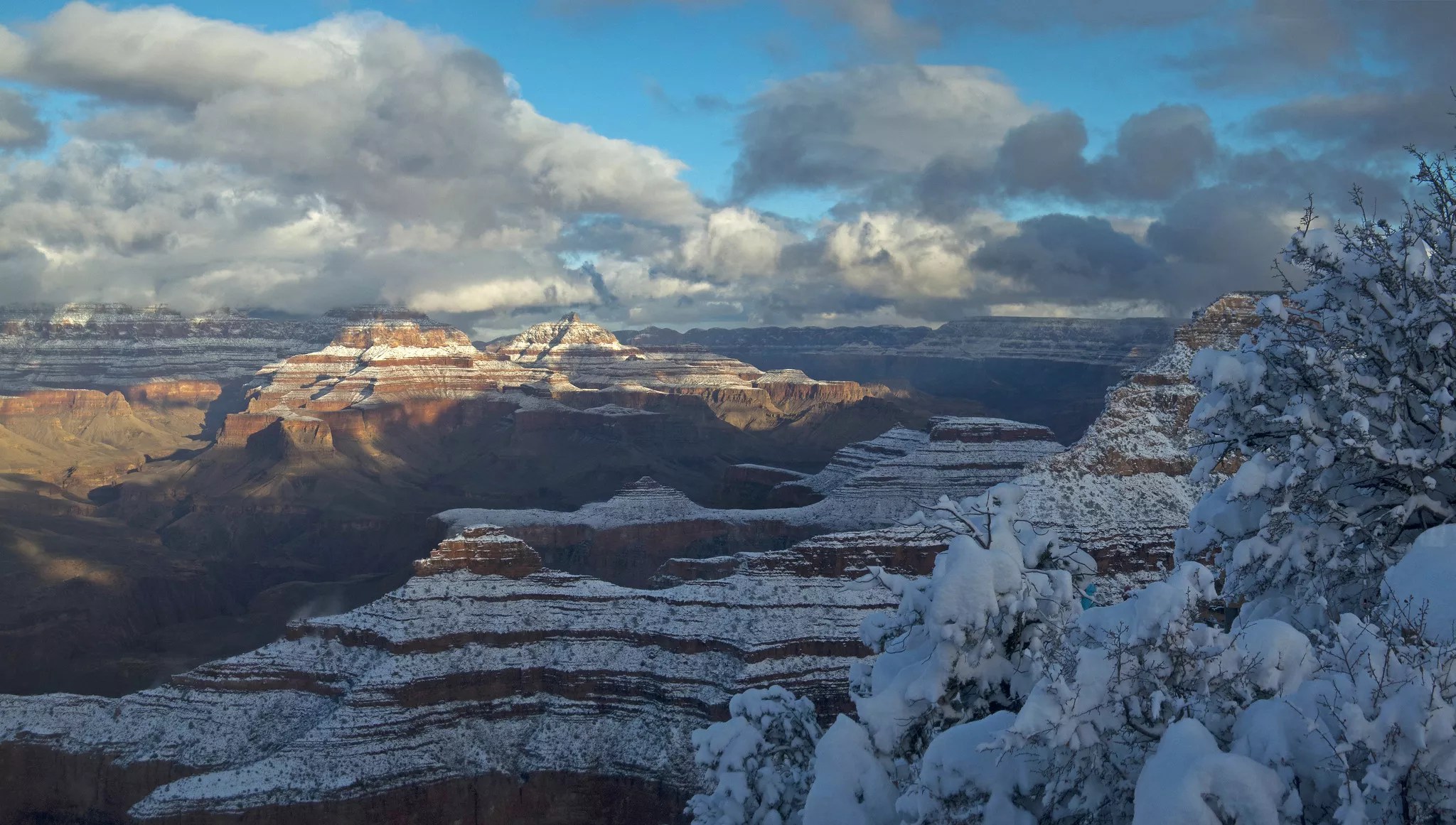
Grand Canyon NPS/CC BY 2.0/Flickr

Audio By Carbonatix
President Donald Trump‘s administration recently fired thousands of federal employees from the National Park Service and U.S. Forest Service. But support for those agencies transcends party lines – even for Trump’s base.
Among voters in Western states, 86% approve of the National Park Service’s performance and 79% approve of the U.S. Forest Service. In addition, 75% of voters oppose reducing funding and oversight for the agencies, according to Colorado College’s 2025 Conservation in the West Poll released on Feb. 19.
The high levels of support are consistent across political parties, the poll found. Even among Republicans who identify as part of the “Make America Great Again” movement, 69% oppose reducing funding and oversight, 81% approve of the National Park Service and 74% approve of the U.S. Forest Service.
“The answers are overwhelming,” says Dave Metz, one of the lead pollsters behind the report. “They’re strongly supportive of maintaining the commitment that the country has shown to protecting its forests, its parks, its fish and wildlife. …Continuity, rather than change, tends to be what voters are looking for when it comes to public lands.”
The 15th annual poll was conducted from Jan. 3-17, just days before Trump returned to the Oval Office. It features responses from 3,316 voters (including 461 Arizonans) across eight Western states: Arizona, Colorado, Idaho, Montana, Nevada, New Mexico, Utah and Wyoming.
In the month since the poll was conducted, Trump’s newly formed Department of Government Efficiency led by Elon Musk has moved to dramatically decrease government spending, eliminating over 200,000 federal workers at more than a dozen agencies.
Last week, 3,400 employees in the U.S. Forest Service and 1,000 in the National Park Service were abruptly fired. The mass losses have inspired outrage from local communities and uncertainty regarding the future of public lands management nationwide.
“When you look at not just Republicans but MAGA supporters, they’re pretty consistent with the rest of the electorate in terms of how they want agencies that are managing public lands and funding for those agencies to be handled,” Metz says. “What the poll is telling us is if there’s a mandate from those voters, it’s pretty much the same as what independents and Democrats want.”
That attitude extends to who voters want leading the agencies, according to the poll. A whopping 87% of respondents want existing career professionals such as rangers and scientists to make decisions about public lands and natural resources, compared to 9% who want new political appointees.
Western voters also expressed strong opposition to many of Trump’s plans regarding land use: 72% oppose allowing more drilling and mining in national public lands; 63% oppose reducing protections under the Endangered Species Act; and 60% oppose increasing public lands available to private companies for logging.
Only 12% of voters surveyed support reducing royalty rates for oil companies to operate on national public lands, and just 14% favor selling public lands for housing development.
Despite these policy disconnects, voters in six of the eight states chose Trump for president, with only Colorado and New Mexico going to Democratic candidate Kamala Harris.
According to Lori Weigel, the other lead pollster, national reports show that voters did not prioritize land-use issues when selecting the president in November.
“Almost anything relating to the environment was in low single digits,” Weigel says. “It’s not to say that voters don’t think those issues are important. It just wasn’t the top-of-mind response they were giving when they were going into that ballot booth. …They weren’t factoring in some of the changes that we’re seeing now in terms of their vote.”
As more changes continue to come every day, Weigel and Metz say they want politicians to learn from the poll results.
“Hopefully, this data can inform some of the policy deliberations and shine a light on where the public stands on these issues,” Metz adds.